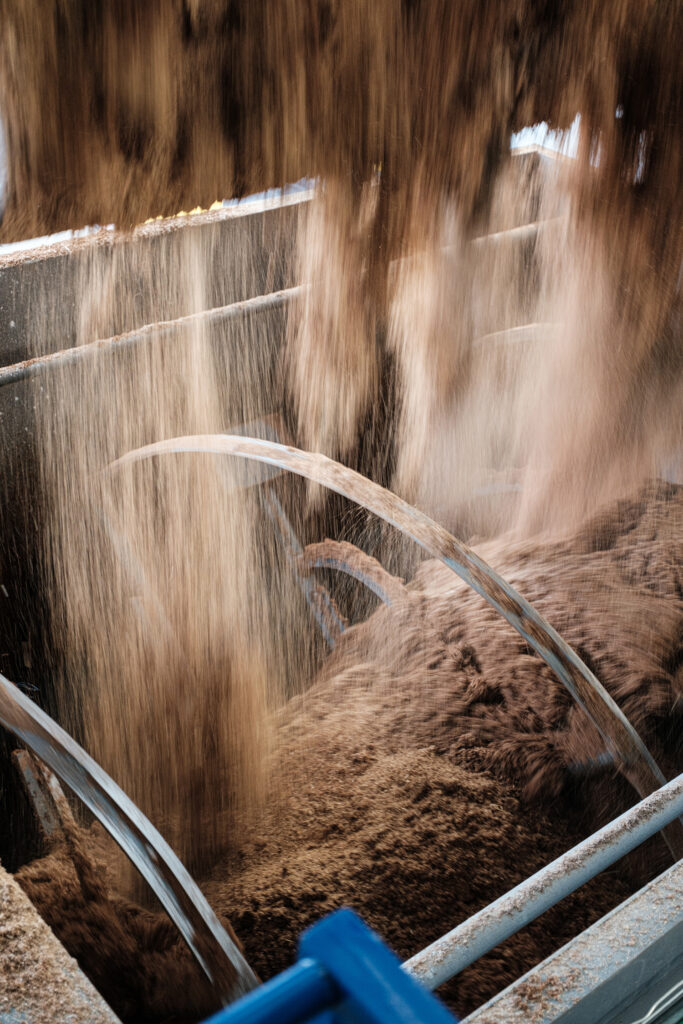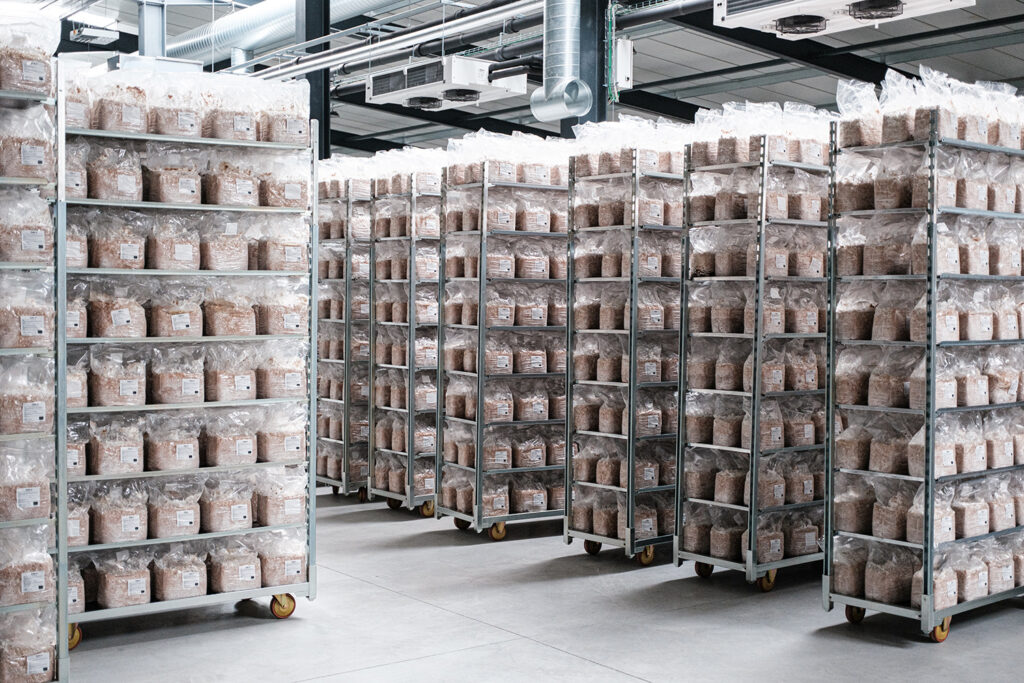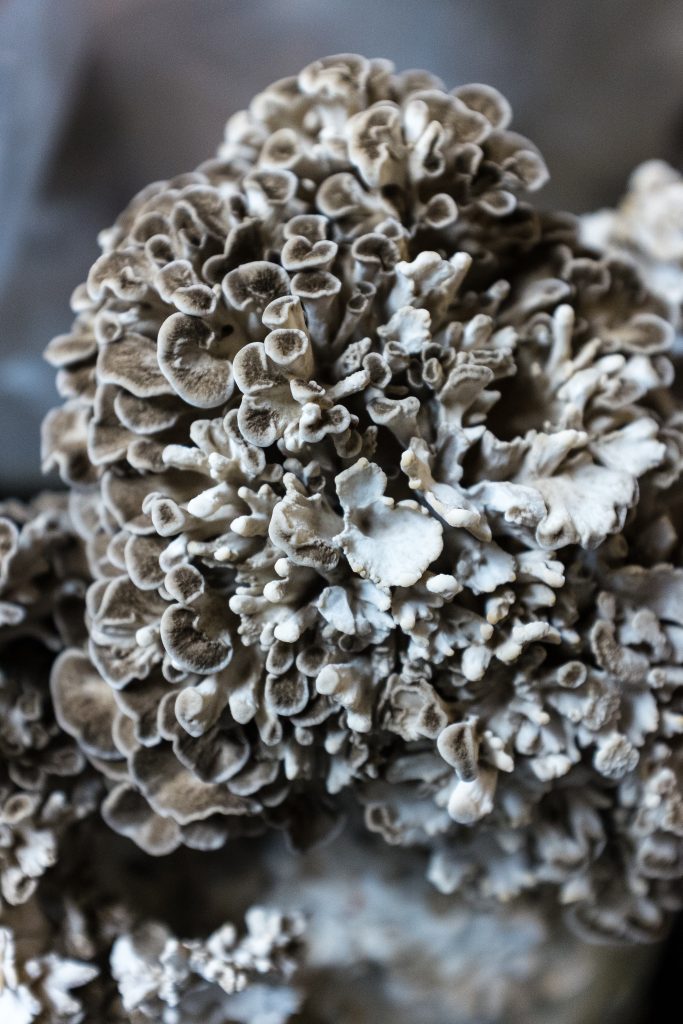
Circular economy
We combine technical expertise with the principles of the circular economy to develop high-end substrates for mushrooms. By valuing by-products such as sawdust from sawmills, wheat bran, and straw, we implement our commitment to circular production that respects resources.
Industrial bakeries residues
In collaboration with Bio-Planet, we’ve tested various recipes using unsold bread. Our latest groundbreaking project, replacing traditional grains with unsold bread in our substrates, has shown promising results. We are now working on scaling these recipes to our industrial production in Villers-le-Bouillet.
Hemp shives
Our ongoing quest for circular materials has led us to explore hemp shives, known for its excellent absorption qualities, as part of our active role in Belgium’s new hemp industry, fostering sustainable agriculture through local partnerships.
Local materials
We’re committed to work with local partners for our materials.
Sawdust are sourced from Northern France, while the wheat bran, bread, and mycelium are procured from Belgium.
Our current experience with hemp shives is sourced from Belgian-grown hemp, emphasizing our dedication to local resources.


Reinforce European production
With the import of substrates from Asia prevalent in large mushroom farms in Spain and Poland, Eclo’s substrate production plays a crucial role in cultivating healthy and sustainable agriculture in Europe.
By providing a local alternative to Asia imports, our approach promotes environmentally friendly agriculture closer to European consumers.
Our substrates, crafted on circular economy principles and focused on sustainability, enable the cultivation of high-quality, nutritious mushrooms beneficial for health.
Through our commitment to local production and innovation, Eclo is actively redefining agricultural practices in Europe, emphasizing quality, proximity, and environmental responsibility.
Nutritional & medicinal
We produce substrates for the growth of Shiitake, Eryngii, Maitake, and Lion’s Mane, renowned for their nutrient richness.
These varieties are traditionally linked to various health benefits, including immune system support and cardiovascular health.
While some of their medicinal properties are still under research, current studies and traditional use suggest significant potential, particularly in areas like prevention and treatment of certain conditions.

